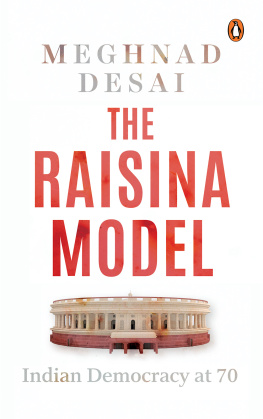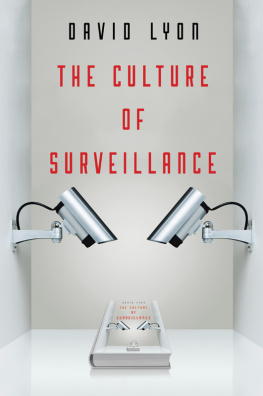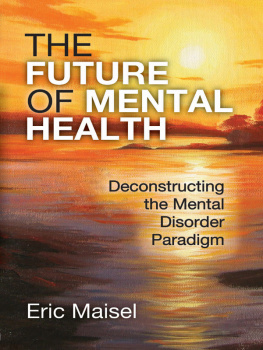
Surveillance Practices and Mental Health
This book examines how CCTV cameras expose the patient body inside the mental health ward, especially the relationship between staff and patients as surveillance subjects.
A key aspect of the book is that existing surveillance literature and mental health literature have largely ignored the influence of CCTV cameras on patient and staff experiences inside mental health wards. Research findings for this book suggest that camera use inside mental health wards is based on a perception of the violent nature of the mental health patient. This perception not only influences ethical mental health practice inside the ward but also impacts how patients experience the ward.
It is not known how and why CCTV camera use has expanded to its uses inside mental health wards. These include not only communal areas of the ward but also patient bedrooms. The research, therefore, examines how and why camera technology was introduced inside three Psychiatric Intensive Care Mental Health Units located in England, UK. Aimed at both undergraduate and postgraduate students, this book will appeal to sociology, mental health and surveillance studies students, as well as practitioners in mental health nursing, caseworkers and social caregivers.
Suki Desai has a background in social work and mental health. She has previously worked as a Mental Health Act commissioner and regional director for the Mental Health Act Commission. More recently, she has worked as a social work academic.
Routledge Studies in Surveillance
Kirstie Ball, William Webster, Charles Raab, Pete Fusey
Kirstie Ball is Professor in Management at University of St Andrews, UK
William Webster is Professor of Public Policy and Management at the University of Stirling, UK
Charles Raab is Professorial Fellow in Politics and International Relations at the University of Edinburgh, UK
Pete Fussey is a Professor in the Department of Sociology at University of Essex, UK
Surveillance is one of the fundamental sociotechnical processes underpinning the administration, governance and management of the modern world. It shapes how the world is experienced and enacted. The much-hyped growth in computing power and data analytics in public and private life, successive scandals concerning privacy breaches, national security and human rights have vastly increased its popularity as a research topic. The centrality of personal data collection to notions of equality, political participation and the emergence of surveillant authoritarian and post-authoritarian capitalisms, among other things, ensure that its popularity will endure within the scholarly community.
A collection of books focusing on surveillance studies, this series aims to help to overcome some of the disciplinary boundaries that surveillance scholars face by providing an informative and diverse range of books, with a variety of outputs that represent the breadth of discussions currently taking place. The series editors are directors of the Centre for Research into Information, Surveillance and Privacy (CRISP). CRISP is an interdisciplinary research centre whose work focuses on the political, legal, economic and social dimensions of the surveillance society.
Gender, Surveillance, and Literature in the Romantic Period
17801830
Lucy E. Thompson
For more information about this series, please visit: www.routledge.com/Routledge-Studies-in-Surveillance/book-series/RSSURV
Surveillance Practices and Mental Health
The Impact of CCTV Inside Mental Health Wards
Suki Desai

First published 2022
by Routledge
2 Park Square, Milton Park, Abingdon, Oxon OX14 4RN
and by Routledge
605 Third Avenue, New York, NY 10158
Routledge is an imprint of the Taylor & Francis Group, an informa business
2022 Suki Desai
The right of Suki Desai to be identified as author of this work has been asserted in accordance with sections 77 and 78 of the Copyright, Designs and Patents Act 1988.
All rights reserved. No part of this book may be reprinted or reproduced or utilised in any form or by any electronic, mechanical, or other means, now known or hereafter invented, including photocopying and recording, or in any information storage or retrieval system, without permission in writing from the publishers.
Trademark notice: Product or corporate names may be trademarks or registered trademarks, and are used only for identification and explanation without intent to infringe.
British Library Cataloguing-in-Publication Data
A catalogue record for this book is available from the British Library
Library of Congress Cataloging-in-Publication Data
Names: Desai, Suki, author.
Title: Surveillance practices and mental health: the impact ofCCTV inside mental health wards / Suki Desai.
Description: Milton Park, Abingdon, Oxon ; New York, NY : Routledge, 2022. |Series: Routledge studies in surveillance |Includes bibliographical references and index.
Identifiers: LCCN 2021033893 (print) | LCCN 2021033894 (ebook) |ISBN 9781032016085 (hardback) | ISBN 9781032016115 (paperback) |ISBN 9781003179306 (ebook)
Subjects: LCSH: PsychiatryGreat Britain. |Psychiatric hospital careGreat BritainCase studies. |Television in security systems. | Mental health servicesGreat Britain.
Classification: LCC RC450.G7 D47 2022 (print) |LCC RC450.G7 (ebook) | DDC 362.2/10941dc23
LC record available at https://lccn.loc.gov/2021033893
LC ebook record available at https://lccn.loc.gov/2021033894
ISBN: 978-1-032-01608-5 (hbk)
ISBN: 978-1-032-01611-5 (pbk)
ISBN: 978-1-003-17930-6 (ebk)
DOI: 10.4324/9781003179306
Typeset in Times New Roman
by Newgen Publishing UK
For my parents
Contents
Tables
Acknowledgements
My huge thanks to patients, staff and managers who contributed to this research. Your contributions were critical in shaping the analysis for this book. Thank you also to Mike McCahill for your support, critical comments and for constantly pushing me to improve my work. My thanks to Neil Thompson a long-time friend and a very accomplished social work author for your critical comments and support. Thank you to Routledge editorial team and Surveillance Studies Series editors for your comments and encouragement, especially Kirstie Ball and Lakshita Joshi. Finally, thank you Stuart for our journey and for all that is yet to come.
Chapter 1 Introduction Surveillance practices and mental health
DOI: 10.4324/9781003179306-1
Background
This book is about how Closed-Circuit Television (CCTV) cameras or video surveillance cameras have infiltrated the mental health ward. It examines how staff inside mental health wards make sense of camera technology and use it in their day-to-day activities. It also explores how patients as subjects of surveillance respond to camera monitoring inside the mental health ward. My interest in the growing use of CCTV cameras inside mental health wards came about during the time that I was appointed as a Mental Health Act commissioner and later as a regional director for the organization, the Mental Health Act Commission. The Mental Health Act Commission (now merged with the Care Quality Commission) was a National Health Service (NHS) special health authority. Its remit was to provide a safeguard for patients detained in hospital under the Mental Health Act 1983. This remit extended to England and Wales only as there are three distinct legal jurisdictions in relation to mental health law within the UK (England and Wales, Northern Ireland and Scotland). Mental Health Act commissioners visited hospitals to meet with those patients who are detained under the Mental Health Act 1983.















